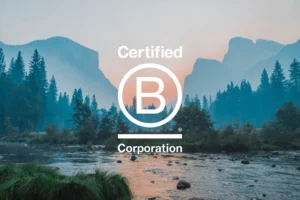Are you one of the 14% of Americans who say they use CBD products? While reasons for use vary from pain relief and anxiety to insomnia and arthritis, there’s still a sizable knowledge gap in what this product is and what it can do. It’s always important to know what you’re putting in your body, so we’re here to arm you with some important facts.
In this article, we’ll run through ten science-backed, credible CBD facts that every user should know.
10 Essential CBD Facts Every User Should Know
Whether you’re a regular CBD user or are just dipping your toes in the pool, here are ten CBD facts to be aware of.
1. CBD vs THC: Key Differences in Effects and Benefits
It’s true, CBD comes from the cannabis plant — but that doesn’t make it marijuana. CBD is just one of more than 100 compounds found in cannabis. Of these compounds, CBD and THC are of the highest concentrations, and although they work together, they have different effects.
THC is the compound that promotes feelings of euphoria, or “high”, and CBD is better known for its health effects. In hemp, CBD is much more prevalent, while marijuana contains more THC.
2. Why CBD Won’t Get You High: The Science Behind Non-Psychoactive Effects
It’s one of the most often confused facts about CBD oil — but the science is in — CBD oil won’t get you high. That’s because this potent cannabinoid is non-psychoactive, unlike THC. While both compounds are derived from the cannabis plant, products like commercially available CBD oil do not have enough THC present for the inebriating effects of THC.
Why won’t CBD alone get you high? The placement of the atoms in CBD, or the structure, leads to weaker bonds with the cannabinoid receptors in the brain compared to THC. It also antagonizes the receptors THC bonds to, limiting the effects of THC.
3. Your Body’s Natural Cannabinoid System: How CBD Works
We know that CBD is a cannabinoid found in cannabis, but what you may not know is that the human body already produces cannabinoids naturally. Our endocannabinoid system produces many chemicals, but the most notable is anandamide.
Anandamide, also known as the “bliss” molecule, activates our CB1 receptors to relieve depression, anxiety, and other health concerns. While anandamide is metabolized by an enzyme called FAAH, CBD inhibits FAAH, which means more anandamide stays in the system.
4. CBD Regulation: Understanding Industry Standards and Safety
While the Food and Drug Administration (FDA) is responsible for approving drugs, it does not approve any supplement. Under DSHEA, the FDA ensures supplements follow the law for good manufacturing practice and inspects facilities. It’s important to only buy CBD from companies who manufacture in FDA inspected facilities and that follow good manufacturing practices, like Ojai Energetics. Ojai Energetics goes above and beyond what is legally required with 3rd party batch testing and transparency to the consumer.
Our self-regulation begins with a partnership of approved cultivars of certified organic hemp flowers from Colorado. Before a batch is sent to market, we post third-party test results to reveal concentrations of cannabinoids, terpenes, heavy metals, VOCs, pesticides, and herbicides, so you know exactly what you’re getting.
5. Hemp Seed Oil vs CBD Oil: Important Differences to Know
It’s easy to mix them up, but CBD oil and hemp seed oil aren’t the same thing. Hemp seed oil is made from the seeds of hemp plants and doesn’t contain cannabinoids. On the other hand, CBD oil utilizes both the flowers and buds in an extraction process that isolates CBD as well as other cannabinoids, terpenes, and natural matter. While CBD comes in a range of products, including oils, tinctures, elixirs, drinks, lotions, and gels — hemp seed oil is mainly used in skincare.
6. CBD Product Quality: Why Third-Party Testing Matters
Unlike brand-name medication, CBD products differ greatly from each other in quality, concentration, and variety. The three main categories CBD products fall under are full-spectrum, broad-spectrum, and isolate.
Full and broad-spectrum CBD products retain many cannabinoids in the extraction processes, but broad-spectrum products also remove THC. Isolate is the rawest form of CBD, extracting all other cannabinoids so that only cannabidiol remains. Even two similarly marketed products can vary significantly in properties. It’s always a good idea to do your research and check brands’ websites for third-party test results.
7. The Entourage Effect: Why Full-Spectrum CBD May Be More Effective
Given its high concentration, it makes sense that the spotlight is put on the cannabinoid CBD, but is that all you need to experience CBD’s full potential? Some suggest no. Enter the “entourage effect” — the theory that the compounds in hemp work better together than they do alone. Full-spectrum CBD products include a broader profile of cannabinoids, terpenes, and other compounds compared to broad-spectrum and isolate products.
8. CBD Product Types: Beyond Traditional Oil Forms
There’s no doubt that the CBD industry has seen a massive boom in the last half-decade, with sources estimating the global market value as USD 2.8 billion. CBD has earned a reputation as a self-treatment of sorts, leading to the development of all kinds of CBD products. These days, CBD is available in more than just oil form, but also as topicals such as creams and gels, edibles such as gummies, and even vaporizer liquids. But don’t let that fool you into thinking that all CBD oils are made the same.
Where other CBD companies use fat-soluble CBD oils, Ojai Energetics uses a patented water-soluble technology to increase bioavailability and allow the cannabinoids to enter the bloodstream directly. This means that more CBD is entering the blood, quicker. Our water-soluble is about 20 times more bioavailable than a fat-based full-spectrum CBD oil.
9. CBD Legal Status: What You Need to Know About Hemp Laws
In 2018, the US Senate passed a bill that made hemp legal under federal law. Under the Farm Bill, industrial hemp that contains less than 0.3% THC is now federally legal. Any concentration of THC above 0.3% is classed as marijuana and therefore federally illegal. In states such as Idaho, Iowa, and South Dakota, hemp is still technically illegal.
10. CBD Drug Interactions: Important Safety Considerations
There’s a significant gap in knowledge of how CBD interacts with prescription drugs, but early reports show that CBD can cause adverse drug effects when taken with some medication. This is because CBD inhibits an enzyme called CYP3A4, which is responsible for metabolizing some clinical drugs. For that reason, it’s recommended that you check with your doctor before taking CBD with medication.
Discover Premium CBD Products from Ojai Energetics
Hey there. Now that you know some more about CBD, it would be rude to not introduce ourselves.
Ojai Energetics specializes in 100% organic full-spectrum, fast-acting CBD products that abide by strict standards. Our flagship product, a water-soluble CBD elixir, is one of the most bioavailable CBD oils on the market, so you get more for your money.
Curious about CBD? We’d love you to give our Full Spectrum Hemp Elixir a try. We hope you enjoy it!















